Author: Sun Ming
Introduction: Sustainability is no longer just a fashionable academic discourse but has become the focus of attention in all fields of today's society. The world is approaching the edge of unsustainable, global warming, climate anomalies, frequent disasters, ecological degradation ...... These hazards are borderless, if no corresponding changes are made, the survival and development of the entire human race will be seriously threatened. Sustainable Design DFS(Design For Sustainability) originates from the concept of sustainable development. It is a profound reflection on the relationship between human development and environmental problems in the design community and a practical process of constantly seeking change.
Limestone is a common non-metallic mineral and a valuable resource with a wide range of uses. Limestone is a commercial name for limestone as a mineral raw material. Limestone is widely used in the history of human civilization because of its wide distribution and easy access in nature. Limestone is not only an indispensable and important raw material for the cement and steel industry. With the development of science and technology, it is also widely used in water ash, smelting, cement, chemical industry, power plant desulfurization and papermaking industries, and can replace plastic to make Guancun and packaging materials are a new type of environmentally friendly raw materials. The market demand is increasing year by year. It is one of the most dynamic environmentally friendly and green mineral resources in the 21st century. Only when the mining and utilization of limestone ore are in the same system can we better solve the problems existing in the current limestone mining. Affected by geological factors, we must separate the sites of processing and mining. However, the traditional automobile transportation has increased the ecological burden. Therefore, more environmentally friendly and intelligent corridor transportation is necessary for sustainable mining of limestone mines.
As a traditional means of transportation, ropeway can span mountains, deep valleys, rivers and lakes. It can not only transport passengers and goods, but also drive traffic vehicles into cages suspended on cableways and hoist them across rivers, mountains and deep valleys. Compared with traditional roads, the construction of ropeways requires negligible environmental resources, and the construction cost is much smaller than that of traditional roads (50 million/km of mountain roads and 1.2 million -6 million/km of ropeways). Each transport ropeway can carry up to 1500 tons per hour, which can meet the maximum mining capacity of almost any limestone mine. In the case of meeting the required maintenance, the accident rate of the ropeway is almost 0 (the official ropeway accident rate in 2015-2020 is 0).
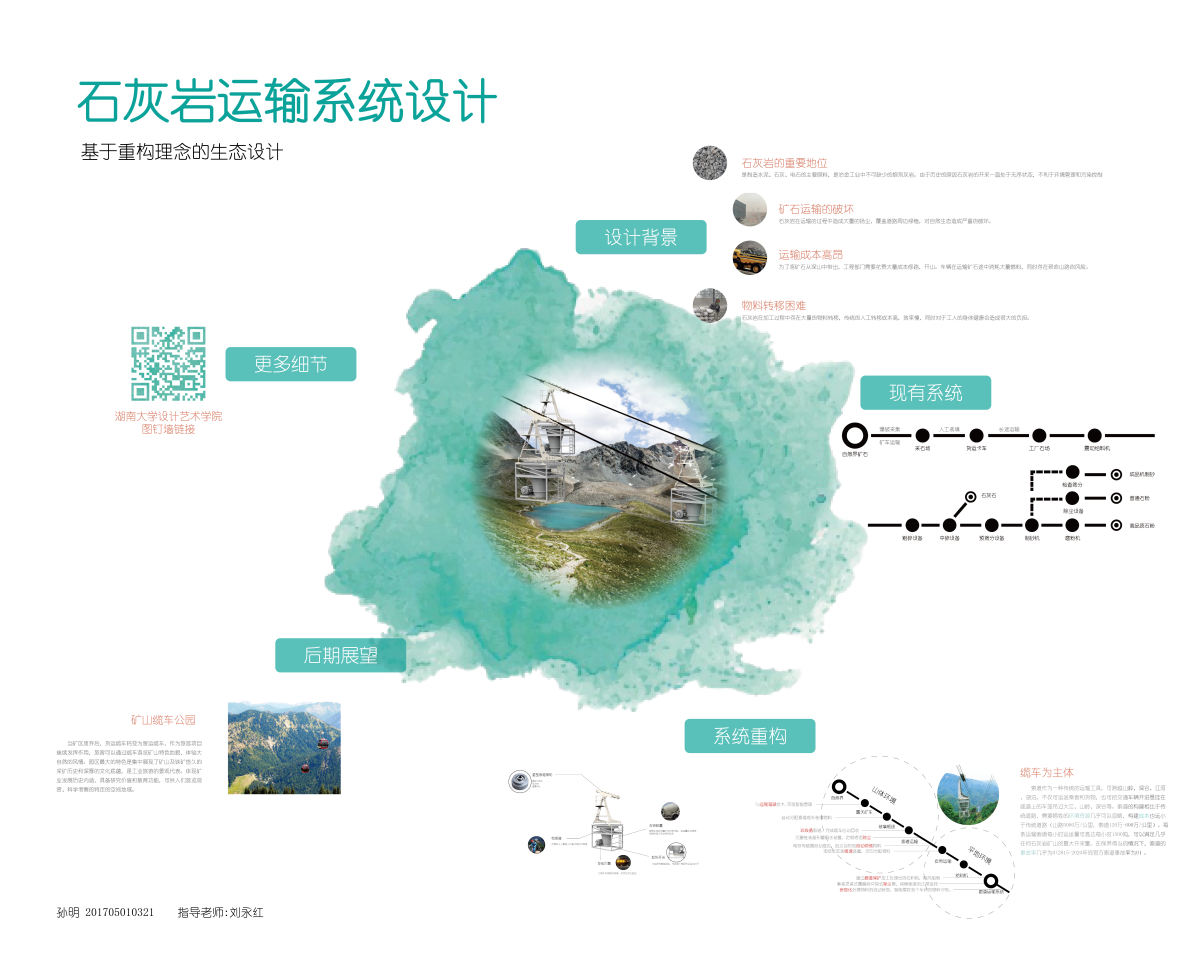
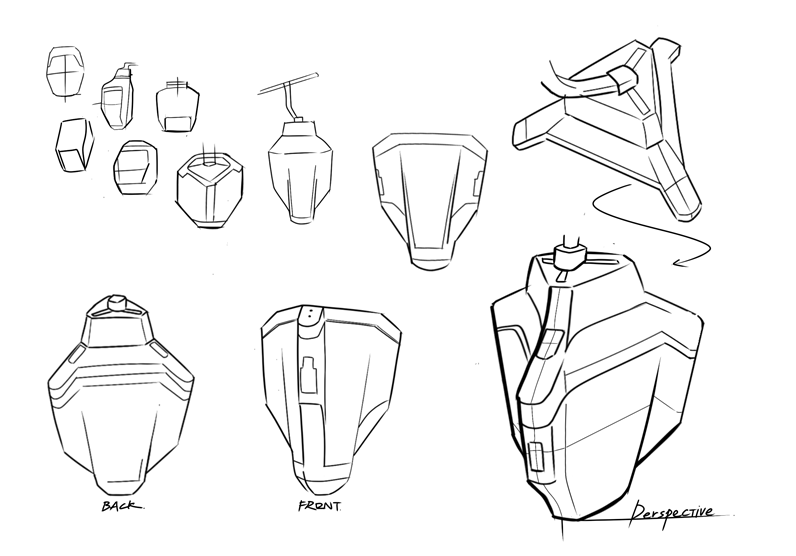
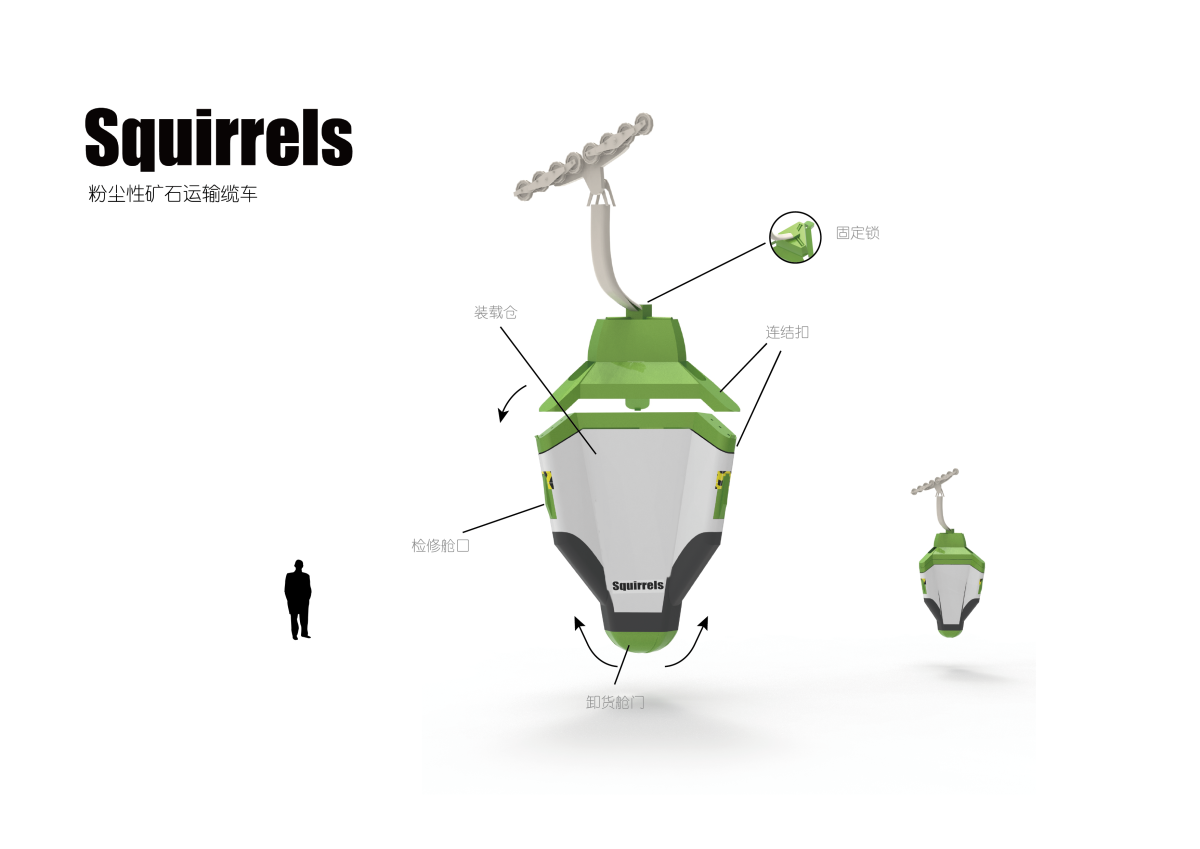
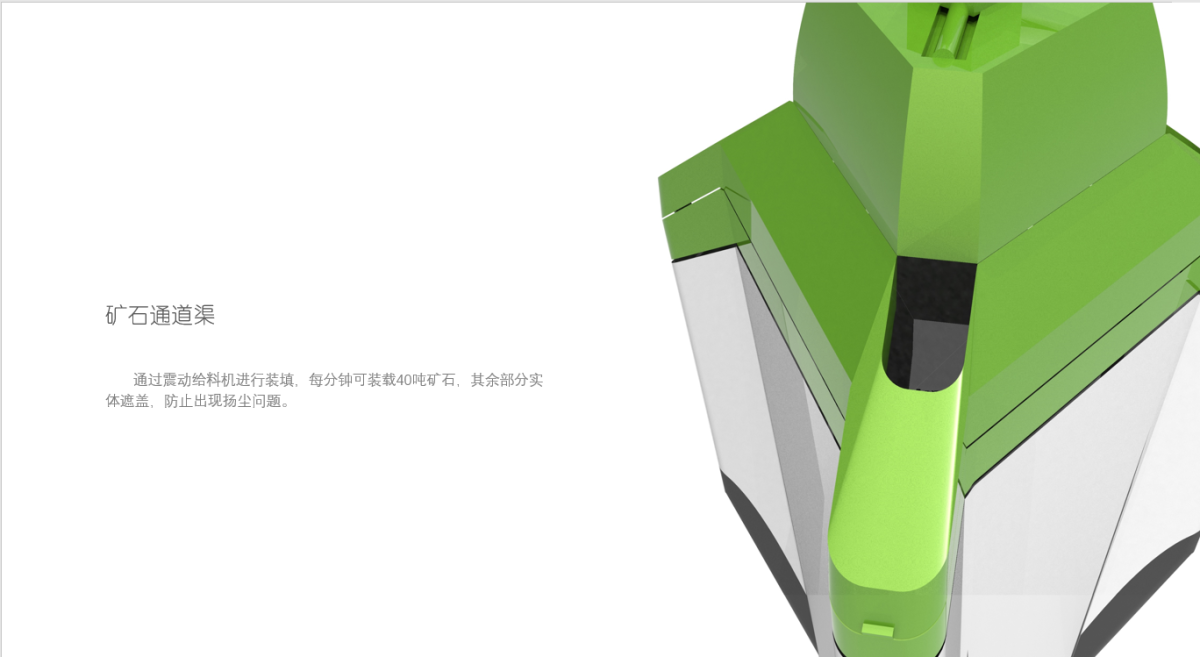
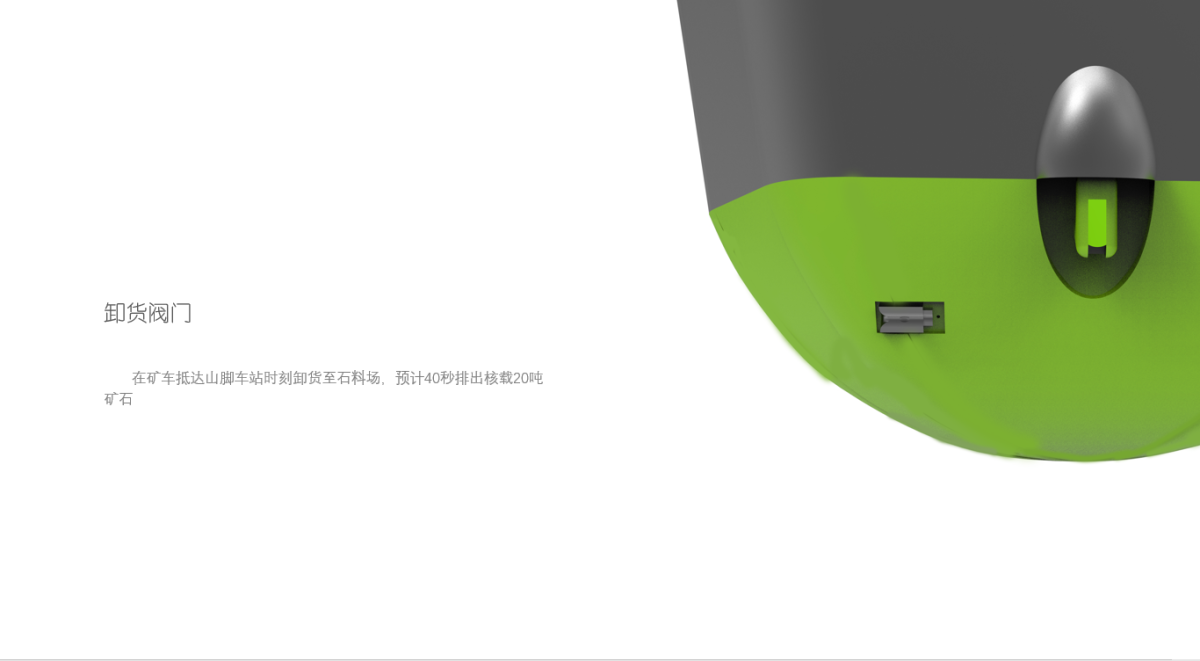
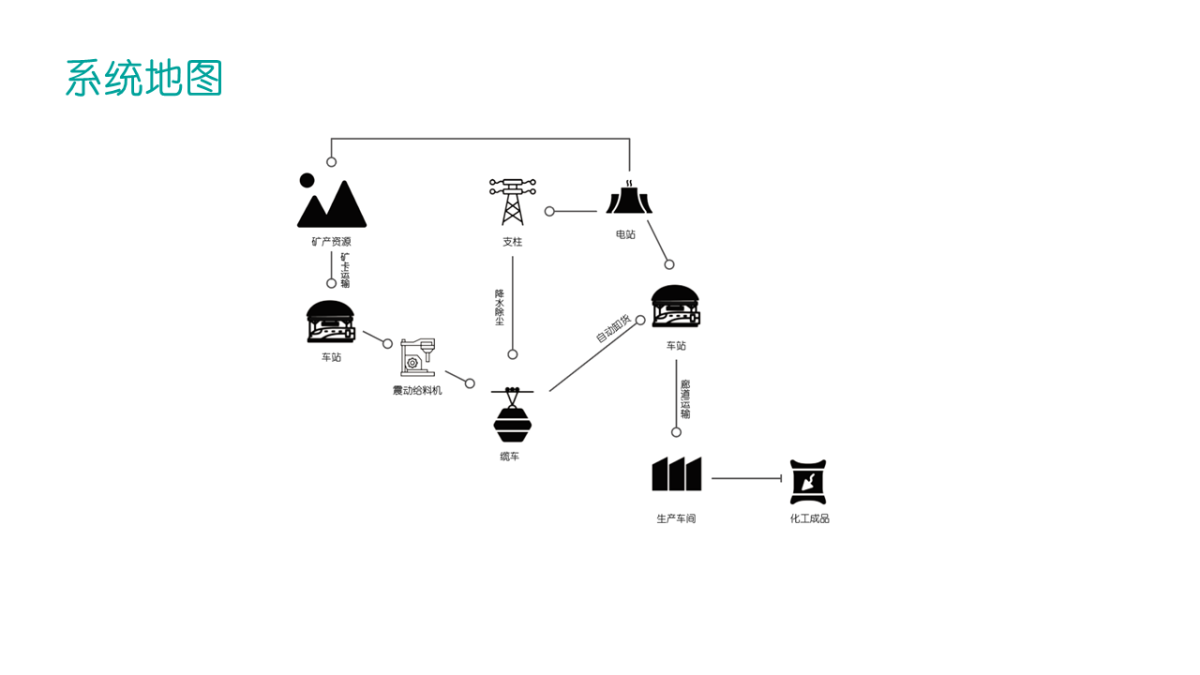
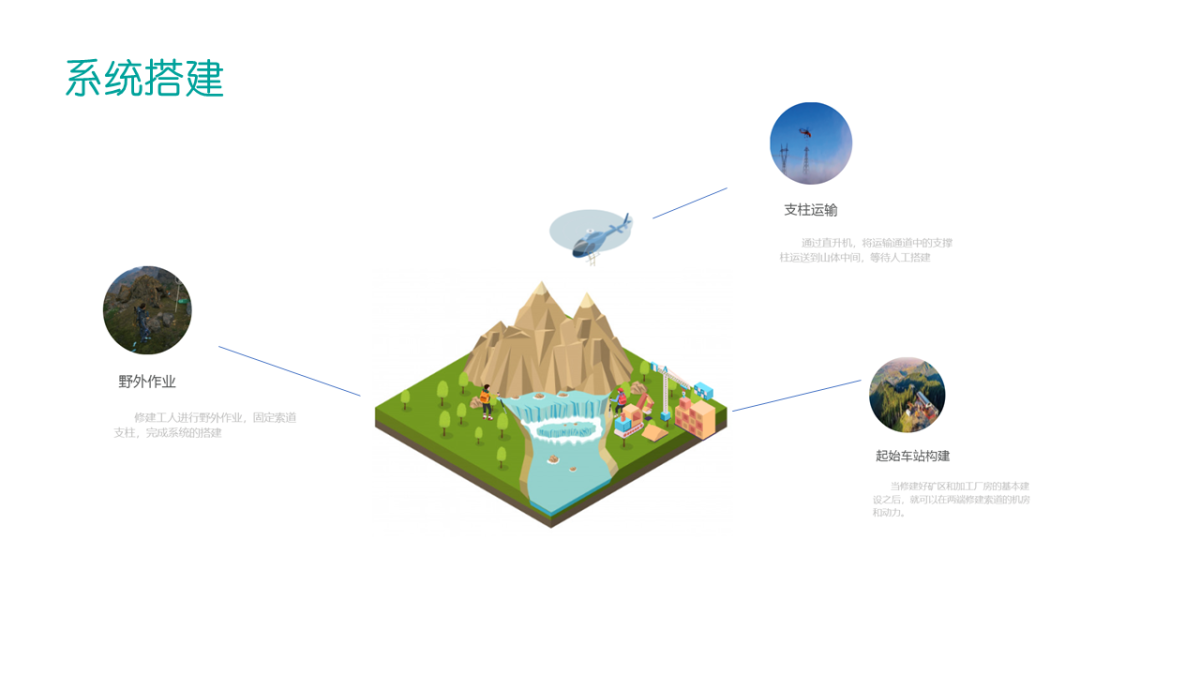
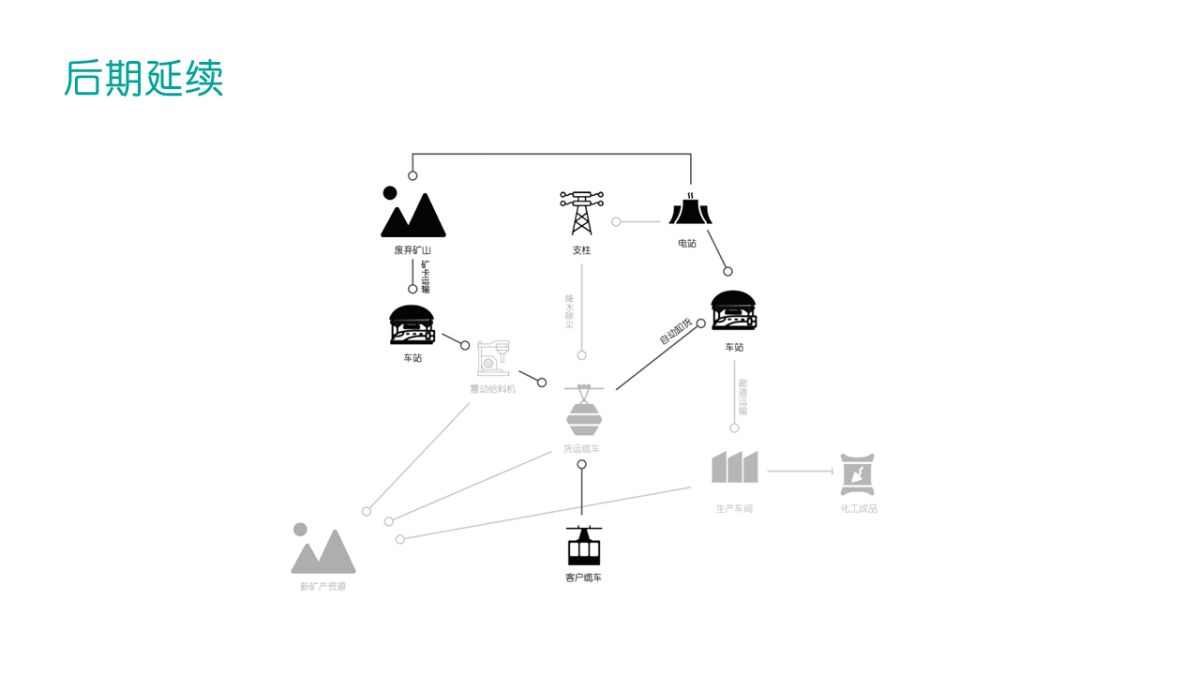
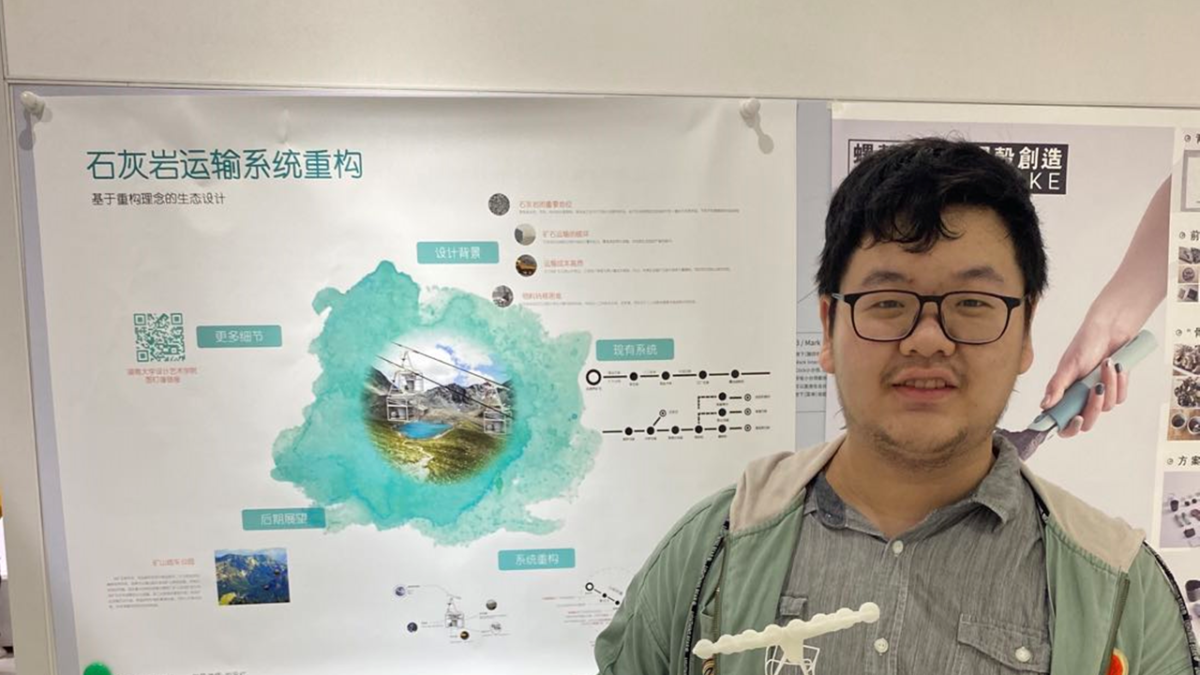
Original link: https://pinwall.cn/project/37612
The copyright of this work belongs to 湖南大学设计艺术学院. No use is allowed without explicit permission from owner.

New user?Create an account
Log In Reset your password.
Account existed?Log In
Read and agree to the User Agreement Terms of Use.

Please enter your email to reset your password
Comment Board (0)
Empty comment